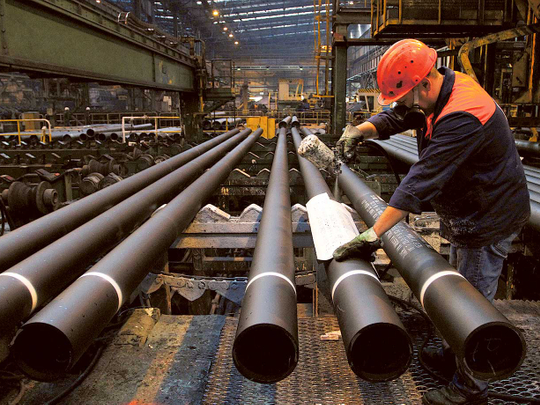
The European Commission president, Ursula von der Leyen’s proposal on Wednesday for a complete ban on Russian oil, with crude imports into EU phased out over six months and refined products stopped by the end of the year, will have far-reaching consequences for the global economies and energy markets.
If agreed upon by the EU, the embargo would follow the US and Britain, which have already imposed such bans as part of sanctions on Russia following the war in Ukraine.
In the short run, the supply shortages are going to drive up oil prices and for the long run, global crude flows are likely to re-work around the EU ban, with more Russian oil heading to key Asian importers such as China and India while more crude from the US and the Middle East making its way to Europe.
Efficacy of sanctions
It is an undeniable fact that West’s financial sanctions on Russia will remain largely ineffective as longs as EU’s payments for oil imports remain unabated. The EU bloc is paying an estimated $850 million daily to Russia for oil imports.
Even with a total ban, its impact on overall financial sanctions on Russia, at least in the short term, looks bleak as higher global crude prices are going to drive up Russian export revenue. As for the longer term, if Russia is able to sell its spare crude in Asia, it could, to a great extent, blunt these sanctions. Additionally, with this ban, the EU also risks the possibility of a Russian retaliation with a total shutdown of natural gas supplies.
Within the EU bloc, for Hungary and Slovakia, both landlocked, it will be a logistical nightmare to use alternate sources. Under the EU plan, these two will be given until the end of 2023 to wean themselves off Russian oil. By keeping the Russian oil taps open, even in the interim, could mean tempting at least a few others in the EU to route their imports through these channels.
Brent crude rose 4 per cent on Wednesday following the announcement. Undoubtedly, the EU ban on Russian oil will have huge consequences for the supply and prices of end-user products such as gasoline, diesel and jet fuel that could further transmitted to inflation and, ultimately, derail the post-pandemic economic recovery around the world.








